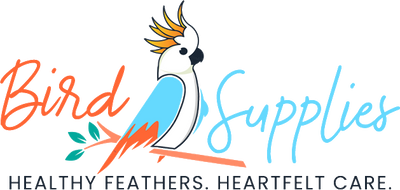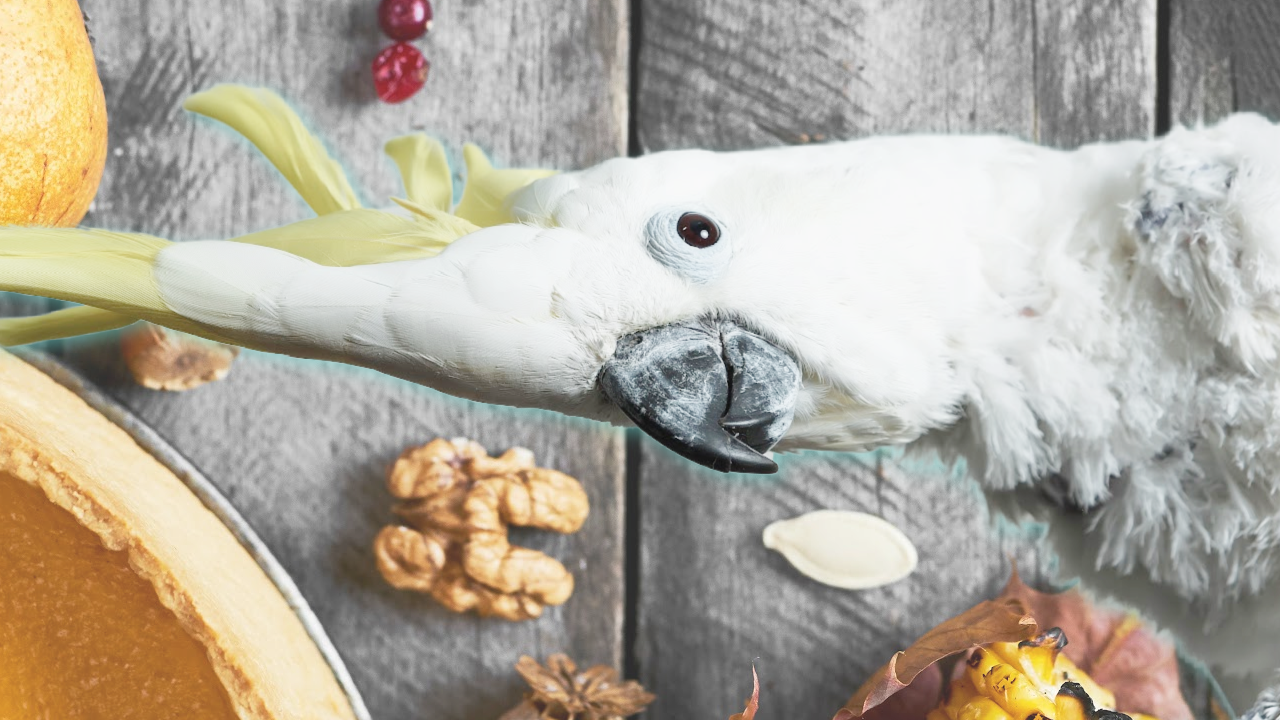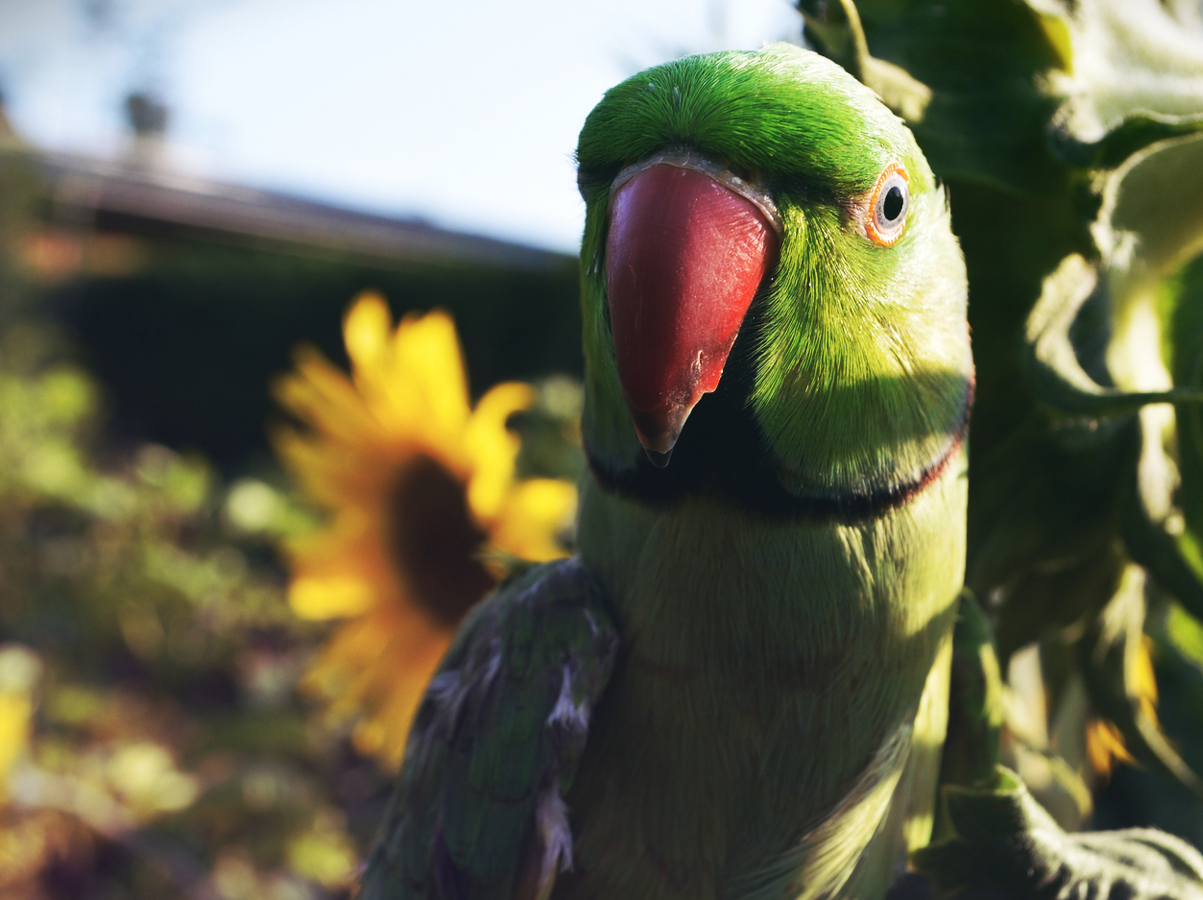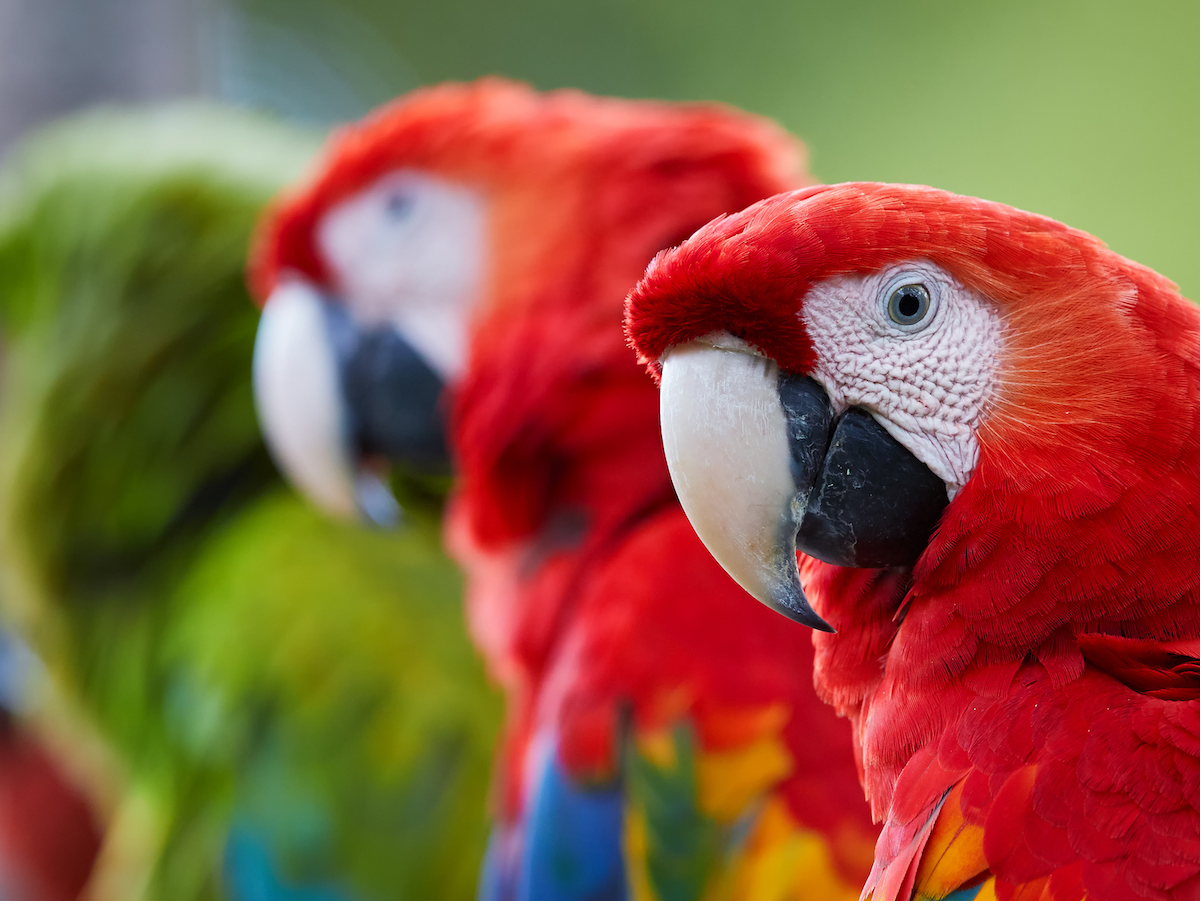Table of Contents
Revised January 17, 2022
How can you calm down an nervous bird? There are many over the counter medications and methods that you can use to help make your parrot less fearful and nervous. But what works for one bird may not work for another, so it’s important to understand which products are most effective in dealing with nervous birds, as well as which products may not be effective and could even make your bird’s anxiety worse. In this article, I’ll provide some dos and don’ts on what to look out for when it comes to calming down anxious birds.
Why is my bird so hyper?
A bird that is over-excited might be having a problem with calming. Birds are like any other animal. If they are not getting their needs met, they will become anxious. Your bird may need more toys or enrichment to keep him from feeling overwhelmed by his environment. He may need more time out of his cage so he can stretch his wings and get some exercise.
Giving your bird calming products or bird prescription medicines can also help calm an anxious bird down. The right product for your bird depends on what is causing him to feel overly excited.
Talk to your a bird behaviorist or your avian veterinarian about which one would work best for your pet. All in all, every bird’s personality is different, so there are no hard-and-fast rules when it comes to caring for birds. If you’re having a problem with hyperactivity, you might find that something that helps one bird may not be useful with another; talk to your vet before making any kind of drastic changes or introducing any new item into your bird’s environment.

Shutterstock used under license
How do you calm an angry bird?
Angry birds may be more common than you realize. Birds that feel threatened, isolated, bored, or lacking attention may become irritable if they’re not properly cared for. A bird whose life lacks general bird wellness like proper nutrition, enrichment, sleep, and exercise might be especially temperamental.
Fortunately, there are a few ways to soothe an angry bird:
1) Consider taking your bird to the vet for a good wellness checkup. Talk to your vet about the behaviors that you are seeing at home.
2) Work on improving three essential areas of your bird's life - nutrition, sleep, and exercise. Birds need all three to be healthy and to have balanced hormones. If you have been neglecting any one of these areas, it may have a significant impact on your bird's wellbeing.
3) Determine if environmental factors are contributing to aggressive behavior by taking stock of what is happening around your bird. Maybe something changed in his environment that set him off?
4) Take a good, strong look at positive reinforcement and start training your bird for 5-10 minutes a day. Not only will it teach better behavior, but it will stimulate your bird's mind and provide social enrichment.
What can you give a bird to calm them down?
Healthy food is essential for your bird to have a healthy mind. Avian vets recommend specially-formulated pelleted foods supplemented with a variety of nutrient-rich fruits, veggies and grains. The more plant-based food variety, the better.
But, some nervous birds need extra support.
Natural bird calming supplements
We never like to have to give our birds prescription medications for behavior-based feather picking i we don't have to. No one want a "drugged-up" bird. But most parrots will not be able to achieve the calm they need to quit behavioral feather picking without some of anxious bird supplement.
Luckily, there's a wide array of natural adaptogen herbs that can safely calm your bird. One of the best of these natural supplements is UnRuffledRx Bird Calming Tea. Made from 6, safe, natural botanicals, just brew into a tea or pour some on top and watch your bird stop fluttering, biting, shrieking and other anxiety-related behavior.
Avian Calm is also called UnRuffledRx Parrot Calming Formula. It's active ingredients are two amino acids that naturally occur in your birds body. L-Theanine and GABA are safe amino acids that occur naturally in the brain. They work to lower the level of excitatory chemicals in the brain that cause stress and anxiety. The UnRuffledRx Parrot Calming Formula blends these ingredients to promote a sense of calm in birds.
We recommend combining UnRuffledRx Parrot Calming Formula with a feather growth supplement, such as UnRuffledRx FeatherUp! The B vitamins in FeatherUp! amplify L-Theanine, which helps send a message to the brain for it to settle down.
Can birds eat Chamomile Flowers?
Your bird might love the comforting benefits of Chamomile Tea for Birds. The flower tea delivers multiple health benefits from calming nerves to helping ease upset stomach, relieving muscle spasms and safe relaxation for your bird. Plus, with its antibacterial properties, this is the ultimate brew to help our feathered friends.
This herb has proven beneficial for birds with night terrors, skin disorders, feather picking, screaming and biting behaviors, and more. You can serve Chamomile tea in a water dish or even spray it on your birds' feathers for them to consume while natural preening occurs. We prefer sweet, flavorful Egyptian Chamomile Flower buds for soothing an anxious bird.
UnRuffledRx Bird Calming Tea
Take an holistic approach to your bird's emotional well-being. Let UnRuffledRx Bird Calming Tea work its subtle magic to balance your bird's mood and uplift his spirits. Feed these organic, caffeine-free herbs either loose in the bowl or steeped into a bird tea.
It includes organic leaves, roots and flowers from plants known for their wellness and calming properties. Herbs aren’t just rich in healing effects—but also important nutrients. This Bird Calming Tea is a blend of adaptogenic herbs designed to help maintain a calmer bird mood.
What are some of the benefits of feeding your bird Hemp Seed?
Purely natural, Organic Raw Hemp Seeds from UnRuffledRx are loaded with the nutrients your bird needs. Plus, they’re THC-free.
Birds need all 21 amino acids! Amino acids are so crucial for feather growth and beautiful plumage, plus brain health and mood. Hemp seeds contain a perfectly balanced ratio of Omega-6 to Omega-3 in 2:1 ratio, making them excellent for skin and heart health.
UnRuffledRx Hemp Seeds for Birds are as wholesome as they are tasty. They help to calm your bird, mind, and body. Studies have found that hemp seed supplements can improve sleep and hormone balance too.
Is there anxiety medicine for birds?
The answer to that question is a resounding yes!
However, do keep in mind that the research on anxiety medications for birds is sparse. Only a few medications have been researched and approved for birds. Since birds have such unique body systems and react differently than mammals to many things, avian veterinarians may be hesitant to prescribe them.
The Merck Veterinary Manual identifies a few prescription-grade medications that have been tested on birds. Some of these include:
-
Amitriptyline (Elavil) - It may take several weeks to work.
-
Clomipramine (Anafranil) - Similar to Amitriptyline but may work better in some cases.
-
Haloperidol (Haldol) - This medication has a few serious adverse side-effects, including anorexia, hepatic dysfunction, and CNS signs; Most frequently used in cockatoo's.
- Fluoxetine (Prozac) - Effectiveness reported to vary; maximal effects may require treatment for several weeks. Never "stop cold turkey" without your vets approval
While not listed in the Merck Veterinary Manual, Propranolol has only been used in feather plucking birds. I've had a lot of customers whose bird's have been prescribed Gabapentin as well.
When using any sort of medication on your pet, be sure to follow all directions that your vet has given you.
It’s important to note that different birds may react differently to a particular drug, so it may take some trial and error before you find one that works for your pet.
How to know if the anxiety medication is working
I usually start by assessing the severity of the problem. Usually, this means watching the bird's behavior over a period of time to get a baseline measurement. Once I have that information, I can begin treatment. Google Sheets is a great place to document the data.
It's important for me to document both good days and bad days so that I can see trends over time. I want to know how frequently the anxious behavior happens and how severe the episodes are. To do this, I create a Likert Scale and a chart. I've always called this a "Time-Study."

A time study also helps you to identify what event triggered the anxious episode in the first place. When you know what the root cause of the anxiety is, you can make a plan to help your bird not get triggered going forward.
You’ll notice that How Severe is set up as a scale from 1-10 (1 being mild to 10 being extreme) and Frequency is documented upon awakening, leaving for work, coming home from work, and bedtime. Of course, you should feel free to use whatever numbers work best for you!
When you have baseline data, then you can compare your bird's behavior on the anxiety medication to tell if the medication is actually working.
In conclusion...
Birds are interesting creatures, but they can be pretty troublesome if they’re anxious. Luckily, there are several things you can do to help keep your pet calm. In order to better understand how to care for anxious birds, you need to know what exactly causes their anxiety. Thankfully, there are a few common symptoms that most anxious birds have in common.
Related Posts:
6 Tips For Using Calming Bird Medicine
Understanding Parrot Stress and What To Do About It
References:
Diane Burroughs, LCSW is a licensed psychotherapist trained in ABA therapy techniques. She specializes in avian anxiety disorders and is certified in Nutrition For Mental Health. Diane has written a number of bird behavior books and she offers behavior consultations. She's developed a range of UnRuffledRx Science-backed Parrot Wellness Supplies.
Diane's products have been featured in the Journal of Avian Medicine and Surgery and at Exoticscon, a conference for exotic pet veterinarians. Her bird collars & supplements are stocked in avian vet clinics and bird stores throughout the US. With over 30 years in the field of behavior, Diane has created thousands of successful individualized behavior plans that help pets thrive.
TAGS: #BirdStress #Anxious Bird #BirdCalmingSupplements #UnRuffledRx
SHARING IS CARING! PLEASE SHARE ON YOUR FAVORITE SOCIAL MEDIA NOW!





1 comment
Betsy
My amazon is plucking her feathers . I would like this book to look into it further to help her . She is always yelling we don’t know why
My amazon is plucking her feathers . I would like this book to look into it further to help her . She is always yelling we don’t know why